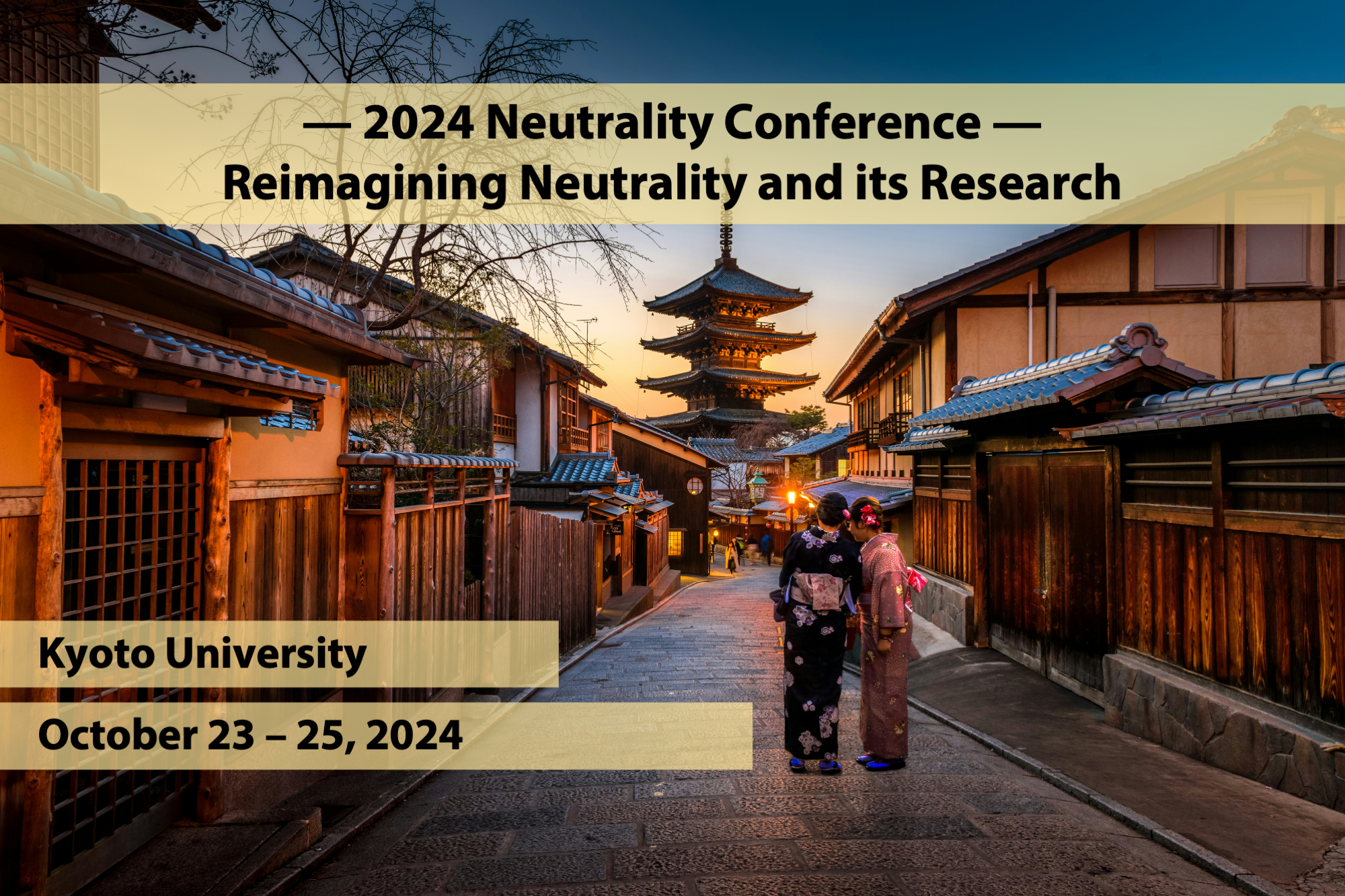Reimagining Neutrality and its Research
2024 International Academic Conference
Kyoto University & Online
October 23 – 25, 2024
Program
The definitiv program for the conference is available now. It consists of 13 panels that are all open for online participation (audience). Please access the program homepage and sign up through the zoom links provided inside each panel.
Theme
Neutrality is an age-old idea. We find it across different periods and cultures. From Thucydides in ancient Greece and Kautilya in the Maurya Empire to more or less every modern war since the creation of the Westphalian system. It exists in many forms and under various names such as nonalignment, non-belligerency, or more recently as India’s “multi-alignment” and Vietnam’s “bamboo diplomacy.” It can be a topic relevant to peace-conferences and nuclear nonproliferation and we find it outside foreign policy, too. Humanitarian NGOs like the International Committee of the Red Cross make use of it, as do the United Nations, financial bodies like the Bank for International Settlements, and even scientific institutions like Europe’s CERN mention neutrality when describing their work. Even more fundamentally, neutrality is a concept of behavioral science, conflict studies, and anthropology.
In this conference, we challenge researchers to reimagine and reinterpret neutrality as an analytical category that encompasses all of the above. Under the umbrella of “anything goes” we want to hear about your research, be it in political science, history, anthropology, biology—or even particle physics. From historical case studies, and legal analysis, to theoretical work in international relations, area studies, mathematics, or game theory. If there is something you consider to be relevant to a discussion about “neutrality,” please consider contributing and sharing it at this conference. We encourage especially early-career researchers and PhD students to present their ideas and work.
Organizing Committee
Director: Dr. Pascal Lottaz, Graduate School of Law, Hakubi Center, Kyoto University.
Co-Organizer: Dr. Mahon Murphy, Graduate School of Law, Kyoto University.
Co-Organizer: Dr. Mostafa Khalili, Center for Southeast Asian Studies, Hakubi Center, Kyoto University.
Executive Director: Ms. Manon Ramos, Graduate School of Law, Kyoto University.
Date & Place
October 23 (Wednesday) – October 25 (Friday), 2024.
Kyoto University, Yoshidahonmachi, Sakyo Ward, Kyoto, 606-8501

